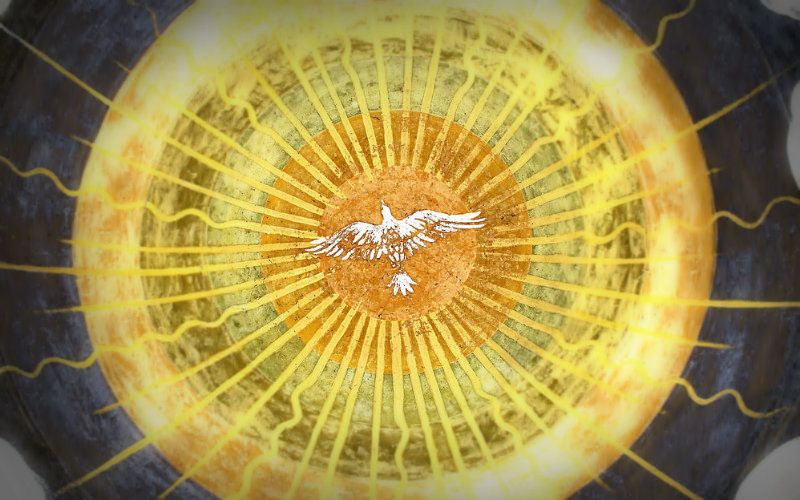The Church is crystal clear that there are “no limits to the mercy of God.” (CCC 1864) Jesus Christ died for everyone’s sins, and anyone who repents of his sins and follows Christ can receive forgiveness and new life.
So then why does Jesus say in the Gospels that “whoever blasphemes against the Holy Spirit never has forgiveness, but is guilty of an eternal sin”? (Mark 3.29) Is this some sort of exception that we must be wary of?
Yes, but not in the way you might expect. And here’s why.
But first, let’s look at what Christ says exactly. Our Lord’s teaching on “blasphemy of the Holy Spirit” is recorded in all three of the Synoptic Gospels.
In Mark, Jesus says: “Truly, I say to you, all sins will be forgiven the children of man, and whatever blasphemies they utter, but whoever blasphemes against the Holy Spirit never has forgiveness, but is guilty of an eternal sin.” (Mark 3.28-29) Matthew and Luke have something similar.
How are Christians to understand this?
Thankfully, the Catechism addresses this teaching directly:
“There are no limits to the mercy of God, but anyone who deliberately refuses to accept his mercy by repenting, rejects the forgiveness of his sins and the salvation offered by the Holy Spirit. Such hardness of heart can lead to final impenitence and eternal loss.” (CCC 1864)
In other words, the Catechism says that “blasphemy of the Holy Spirit” is rejecting the forgiveness of God all the way to the end of one’s life. It’s blasphemy of the Holy Spirit because salvation is offered to every person by the Holy Spirit. (But don’t all three persons of the Trinity offer salvation? See the Principle of Appropriation.)
Pope St. John Paul II explains this in his encyclical on the Holy Spirit, Dominum et vivificantem:
“Why is blasphemy against the Holy Spirit unforgivable? […] St. Thomas Aquinas replies that it is a question of a sin that is ‘unforgivable by its very nature, insofar as it excludes the elements through which the forgiveness of sin takes place.’
“According to such an exegesis, “blasphemy” does not properly consist in offending against the Holy Spirit in words; it consists rather in the refusal to accept the salvation which God offers to man through the Holy Spirit, working through the power of the Cross.”
So should we all be wary of committing the sin of blasphemy of the Holy Spirit?
Not in the sense that we should be worried about committing a sin so bad that God can’t forgive it if we repent. No such sin exists.
But we should be wary about refusing God’s forgiveness. After we die, there will be no second chances. In his loving kindness, God has offered us a chance for salvation. We should humbly, and speedily, repent of our sins and accept God’s gratuitous gift of grace.

